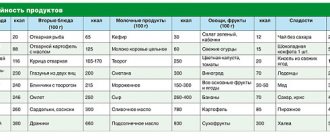Fitness and bodybuilding Anatomy
Recovery from exercise is critical, and sleep is widely recognized as a critical element of recovery. Learn more about what sleep is, why it's important, and how to increase its anabolic effects!
Author:
Clayton South
Although lifting weights is an effective way to make significant improvements in your physique (i.e., increasing muscle mass and burning fat), it requires a tremendous amount of effort. This means that recovery from training is critical, and sleep is widely recognized as a critical component of recovery. It's just a fact: in order to recover and grow, you need to rest.
Unfortunately, sleep is sometimes an unaffordable luxury, and many bodybuilders don't get enough of it. Sometimes this is due to a busy training schedule, sometimes it is due to neglect of the importance of sleep. This is a mistake, because such an attitude towards sleep will lead to the fact that you will painfully stagnate in one place, not seeing any progress.
After you read this article, you will know what sleep is, how it works, why it is important, and the best way to increase the anabolic effects of sleep for greater muscle growth.
Sleep as a recovery factor.
In bodybuilding and any other sport, there are three main factors that are responsible for your progress.
- The first factor is training.
- The second factor is nutrition.
- And the third factor is recovery.
Let’s leave the first two factors for discussion under the headings of sports and training and food and diet, and now let’s talk about recovery.
One of the most important aspects of recovery is quality and sound sleep, the importance of which for the health of the athlete and his body is difficult to overestimate. Next, we will discuss how many hours it is recommended to sleep, what processes take place in the body while we sleep. Let's talk about what interferes with our sleep, and how to get rid of these interferences.
How many hours of sleep does an athlete need?
Sleep issues are a somewhat individual thing. For each person and his body, the number of hours of sleep required is different. Here we will talk about averages and look at general tips on this issue. Take these tips into account, but if you personally are used to sleeping more or less and still feel comfortable, then listen to your body. Approximately 80% of people experience some kind of sleep disturbance or sleep insufficiently, on average 5-6 hours
per day. This time is enough for your body and organism to partially recover, however, if you are interested in high-quality and complete recovery and rest, these hours of sleep will not be enough for you.
- If you are an athlete involved in bodybuilding, powerlifting or other types of physical development and training, then the minimum figure for you is 8 hours of sleep
. In this case, a positive effect will be observed in terms of recovery and progression of the load. - Ideally, if you're serious about your goal and want to get the most out of your sleep after a hard workout, you should sleep between 9 and 11 hours a night
(include naps if necessary). - Athletes who professionally engage in bodybuilding sometimes spend up to 15 hours a day
(counting sleep as daytime).
Natural Natural Supplements to Improve Sleep
There are several supplements that can help you sleep better.
Melatonin is a natural hormone that induces and regulates sleep. Also sold as a dietary supplement. Most people find melatonin helps them fall asleep faster and stay asleep longer.
GABA - gamma-aminobutyric acid . It is an amino acid that helps induce relaxation and improves sleep. Studies have shown that low levels of this natural brain neurotransmitter, GABA, lead to frequent awakenings. And regular intake of gamma-aminobutyric acid helps to fall asleep better and improves the quality of night rest and recovery after physical activity in general.
If you can’t resist something, resist it!
Good luck!
What if an athlete is constantly breaking his routine and not getting enough sleep?
French-born playwright Pierre Decourcel said that “Sleep is a break from life.” But the fact remains that when a series of daily tasks that require solutions, a hard day at work, fatigue and other troubles fall on you, the ability to relax and indulge in good restorative sleep is sharply reduced and the person’s mental productivity of the brain decreases, the reaction ceases to be the same, and, as As a result, in this situation, your muscles will not only not grow, but quite possibly will decrease somewhat in size, and your body will lose its previous performance. The general condition of your nervous system directly depends on the ability of your brain to transmit nerve signals to your muscles; it is this process that causes the muscles to contract safely. In other words, the Central Nervous System regulates the contraction of your muscles. If you are tired, your system will not be able to turn on at full capacity. Pay special attention to sleep, take the time and repay your body for its hard work.
Woman's body
Those who go in for sports react to insomnia an order of magnitude more severely than men.
It is inherent in nature that the fair half of humanity needs longer rest at night, about 9 hours a day
(at least when playing sports). It is recommended to sleep the same amount for male athletes, namely 9-11 hours. Women tend to go to bed earlier and get up later, and therefore, lack of sleep affects the female body much more negatively.
CONCLUSION:
If you notice that you are not getting enough sleep and your system is under increased stress, it is better to postpone the heavy workout for the next day and organize your training program so that the heavy training occurs on days when you are well-rested and in good spirits. In any case, for a tired body, such training will not only be ineffective, but will also cause harm - it will overload the nervous system into a state of overtraining and fatigue.
What processes does the body initiate while we sleep?
While we sleep, our brain, nervous system and sensory organs do not turn off and do not even slow down their work; they move from one mode of operation to another. In fact, sleep is the time when hormonal activity in your system is at its peak; approximately 80-90% of somatotropin (growth hormone), as well as other important hormones, including anabolic ones, work in full force during sleep. Therefore, it is while you sleep that protein is synthesized and your muscle tissue is built, as well as the tissue of your organs - the cells of which are renewed. Particularly active during your sleep are the cells of the immune system - T-lymphocytes, which ensure that the entire system is well protected.
The importance of sleep: anabolism and more
So, with the science out of the way, let's get down to the good stuff: how can sleep benefit your health and help you gain muscle mass?
Sleep has an invaluable effect on your entire body. It is during sleep that your body recovers from stress, heals damage and builds muscle mass. During sleep, hormones are released most intensely, and that is why sleep has an anabolic effect.
In addition, during sleep, neurotransmitters (special chemicals) are replenished, which are necessary for strength training to be effective and safe. These neurotransmitters include dopamine, epinephrine, norepinephrine, acetylcholine and more.
Neurotransmitters
are chemicals that transmit, amplify and regulate signals between neurons and other cells. Neurotransmitters are located in vesicles that are grouped under the membrane on the presynaptic side of the synapse and exit into the synaptic cleft, where they bind receptors located in the membrane on the postsynaptic side of the synapse.
These substances are responsible for alertness, focus, motivation, overall energy levels and muscle contractions. They become exhausted due to hard training and any other activity. Only sleep allows the body to heal itself by replenishing the substances needed to achieve results.
At the same time, sleep is important for the immune system, mental health and the millions of biological processes that occur in the body every day. Without enough sleep, your body will not function properly, your health will decline, and your results will suffer.
Sleep includes several stages in the seed.
slow sleep
consists of four stages:
- Sleep stage number 1: dozing, thoughts fill your subconscious.
- Sleep stage number 2: relatively shallow sleep, at this moment the person is quite easy to wake up, his eyes are motionless.
- Sleep stage number 3: Delta Sleep.
A fairly slow but sound sleep, during which your system is activated and the release of hormones into the blood and restoration of the body begins. - Sleep stage number 4: Delta Sleep.
This is the deepest period of your sleep, it is difficult to wake a person, at this moment dreams are seen as clearly as possible, the person is not aware of his personality. This is the most important stage for strengthening neuronal connections (conscious memories).
But there is another, separate stage of sleep called REM sleep.
This is the stage when a person’s awakening occurs gradually. It follows the last, fourth stage of slow-wave sleep. In REM sleep, your brain is almost as active as if you were awake, but your muscles are still relaxed and have not yet turned on or become toned.
What can a sleep disorder lead to?
The importance of sleep when playing various sports is difficult to overestimate, and its lack can negate all the efforts made during exhausting training. Among the most obvious consequences of lack of sleep are the following:
- Deterioration of reaction and coordination of movements . Even one sleepless night has an extremely negative impact on the quality of an athlete’s motor skills: the sense of balance and depth perception worsens, reflexes become dull, and speed decreases. A boxer who has not had enough sleep will not be able to dodge an opponent’s blow in time, a tennis player will not direct the ball to the right point, and a gymnast will not perform the required element cleanly.
- Decreased mental abilities, deterioration of memory, concentration . At first glance, this may not particularly hinder the athlete, but in fact this moment can have an extremely negative impact on his results and achievements. He will not be able to adequately perceive and analyze the information received from coaches, will not be able to quickly make decisions, or calculate the opponent’s actions in advance.
- Slowing down metabolic processes . Regular lack of sleep threatens to result in extra pounds for an athlete, since his body begins to process foods rich in carbohydrates much more slowly. As a result, they are not used to generate additional energy, but are converted into fats and stored.
- Increased risk of disease . During sleep, the immune system produces cytokine proteins, the function of which is to protect the body from a variety of viruses. If the duration of sleep decreases, then, accordingly, there is a decrease in the amount of cytokines produced, as a result of which the risk of catching some kind of viral infection increases.
- Increased bone fragility . Studies have shown that prolonged wakefulness reduces bone and bone marrow density, resulting in an increased risk of bone fracture. For athletes. For those who have to deal with high loads, this can be extremely dangerous.
- Deterioration of mood, development of depression . Probably every person knows that after a sleepless night, mood drops, irritability increases, and apathy appears. Regular lack of sleep can lead to depression. Naturally, in such a state there is no need to talk about high sporting achievements.
- Decrease in testosterone levels . In addition to the fact that this hormone is responsible for sexual function in men, it is of great importance for athletes, helping to improve speed and strength performance, as well as reducing recovery time after training. Lack of sleep leads to a decrease in testosterone levels in the blood, and, as a result, deterioration in athletic performance.
Do you need a nap during the day?
The most significant stages of sleep, especially for a person involved in sports, are the third and fourth stages. During the day, your body’s ability to enter these stages of sleep is significantly limited, since during the day, the pineal gland produces significantly less melatonin, the sleep hormone, than at night.
Sleeping during the day is recommended for those athletes who experience significant stress during training. In this case, you should sleep for an hour or more during the day - this will help partially restore your nervous system. However, the main processes of recovery of your system occur during the main thing - night sleep. At night, the body receives maximum benefits.
Consequences of lack of sleep
- An increase in the level of the hormone cortisol, which leads to the destruction of muscle tissue and stimulates the growth of fatty deposits.
- The release of growth hormones decreases and all body functions are disrupted.
- Increased stress that the body received from the training process, which increases the chances of injury during exercise.
- A decrease in concentration, which will not allow you to focus on the feeling of the muscles being trained, which means the execution technique will be lame and the result of the training will be low.
Factors that interfere with sleep. Why can't you sleep? How to sleep?
| Cause of poor sleep or insomnia. | Why? Explanation of the causes of insomnia. | What should you do to fall asleep? |
| A hearty, hearty dinner. | If you eat a lot of fatty, heavy food before going to bed, it will be difficult for your stomach to digest it at night. It will constantly send impulses that cause the brain to experience unnecessary activity. | Consume carbohydrates 2-3 hours before going to bed, and before bed, take a protein shake, casein (ideal) or amino acids, which will provide your system with building material for nighttime anabolism, and will not create unnecessary heaviness for the stomach. |
| Uneven, inconsistent sleep patterns. | When you constantly go to bed at different times, you upset the balance between the biorhythms of wakefulness and sleep. It's difficult for your body to adapt to the different times each time you go to bed. | Follow the regime. Go to bed at the same time every day, earlier rather than later. The optimal time for going to bed is 22:00 - 23:00. |
| Active physical activity. | Physical exercise increases your system temperature, increases blood circulation, and excites your nervous system, thereby bringing it into a state of wakefulness. | Avoid any physical activity 2 hours before bedtime. If you do do your workouts at night, be sure to cool down and relax after your workout to allow your body to restore temperature and calm your nervous system before bed. |
| Intense thought processes. | The most common reason for lack of sleep or insomnia is various kinds of thoughts in bed, at a time when you should not think about anything and go to sleep. | Set yourself up positively for progress, mentally thank your body for this day and let go of all thoughts, plunging into a long-awaited, restorative sleep. |
There is a well-known saying: “The key to health is sound sleep.” Issues of sleep duration concern all lovers of physical education and a healthy lifestyle. Normal sleep is the kind of sleep after which you feel rested and invigorated. Every person feels sleep-deprived and notices a decrease in attention, mood and performance if several hours of sleep are not enough. What does decreased performance mean for an athlete? A sleep-deprived athlete conducts poor-quality training and shows poor results.
Therefore, sleep is the main recovery event for an athlete ! Prolonged sleep is important for athletes, no matter what style they compete in. During sleep, the activity of a person’s physiological functions decreases; the body’s forces are aimed at restoring the energy expended during wakefulness. Sleep cannot be replaced by any other means - neither food, nor walks in the fresh air. Sleep disorder specialist Gabby Badr, from the London Clinic, believes that lack of sleep negatively affects the health of our immune system and makes our bodies more vulnerable to illness and infectious diseases. In addition, lack of sleep affects a person's ability to think and concentrate. Infographics scientists at Ffunction and Zeo have calculated that if a person doesn’t get enough sleep, a person may experience slower reactions, a decrease in metabolism, and a feeling that everything is much more difficult than it actually is. Irregular sleep can reduce metabolism by up to 30%. Poor sleep patterns increase the risk of exhaustion by 11%. Irregular sleep not only reduces reaction speed. It has been proven that when working out in the gym, a sleep-deprived athlete reduces the maximum weight lifted by five kilograms after just four days. And after thirty hours without sleep, the athlete has to expend up to nineteen percent more energy to perform the same actions. Good sleep helps prevent various diseases, prevents the development of chronic fatigue, absent-mindedness, and lack of concentration. It has been proven that regular and adequate sleep helps, for example, tennis players improve their hitting accuracy by 42%. A harmonious sleep pattern helps swimmers improve their starting reaction time by 17%. Thus, American scientists from the Professional Sleep Association conducted a study among 5 healthy Stanford University students on the men's and women's swimming teams. During the first two weeks of the experiment, normal sleep patterns were maintained. Sleep duration was then extended to 10 hours per day for 6-7 weeks. Athletic performance was assessed after each training session. After the extra sleep, the athletes swam the 15-meter distance 0.15 seconds faster and improved their turn time by 0.10 seconds. From a medical point of view, most leading experts are inclined to believe that on average a healthy person needs to sleep about 7-8 hours , but with heavy physical activity, especially in the preparatory period, the athlete’s need for quality sleep increases, and it should be at least 9 hours a night time. The founder of bodybuilding, Joe Weider, in his popular book “The Body Building System” also writes that muscle growth is based on the depletion of muscle energy. It takes time and rest for the energy reserves in your muscles to be replenished. Weider emphasizes that an athlete who wants to achieve optimal muscle growth must ensure adequate sleep and rest and allow the body to recover between workouts. Joe Weider recommended that athletes use techniques to calm their emotions before falling asleep and free their minds from all negative, upsetting impressions received during the day. “Get rid of these harmful states, and then immediately focus on peace, harmony, success, victories. Establish a new, productive state of thinking, forcing the negative phenomena to dissipate, and then project and affirm the ideals that you want to achieve. Mentally replay the videotape of success and muscle building in your mind and create a feeling of confidence and well-being. A relaxed, positive state of consciousness will allow you to quickly fall asleep! ”, writes the founder of bodybuilding in his book. In modern bodybuilding, it is believed that if an athlete is working for results, to increase working weight, then sleep should last from 8 to 9 hours. It is this length of night's rest that will allow the athlete to gain strength, and the body to rest and recover after a hard workout. If a bodybuilder trains simply to have a beautiful body, is involved in athletics or a light level of bodybuilding, then such an athlete can sleep less - about 6 hours. When a person sleeps, the body deploys the construction of new tissues and the disposal of old damaged and inactive ones. During sleep, the level of anabolic processes increases significantly and the level of catabolism decreases (but it still remains and gradually gains strength). About 90% of all daily production of growth hormone occurs during sleep. There is also an activation of T-lymphocytes, which are responsible for our immunity. Simply put, when we sleep, we not only grow, but also heal. That is why, when a person is sick, he often feels sleepy, because the body wants to start the healing process. But during sleep, the digestive system practically does not work during sleep, but since active protein synthesis and amino acid metabolism occur, the body extracts the necessary energy in the process of destruction of muscle cells. That is why the general nutritional recommendations for bodybuilding include the mandatory intake of casein protein at night and the morning intake of a protein mixture (which allows you to restore these catabolic processes and start anabolism). Also in bodybuilding, the first meal after sleep is quite important, i.e. breakfast. Morning nutrition gives an impetus to boost metabolism, so skipping breakfast is not recommended for athletes. An athlete's performance will be influenced not only by the duration of sleep, but also by its quality. Even if a person sleeps 10 hours a day, but for some reason often wakes up, the quality and efficiency of such sleep tends to be 0. Therefore, a person who leads a sports lifestyle needs to create an environment for healthy sleep. For sound sleep, first of all, you need to monitor your bedtime routine, as well as provide yourself with peace and quiet, the absence of irritants that can cause excessive stimulation of the nervous system, and fresh air. You can't exercise before bed. After all, after physical activity, the nervous system is tense and cannot calm down quickly, so there is a risk of not falling asleep for a long time. In case of sleep disorder , it is good to take a short walk, or take a foot bath, or take a bath, and drink soothing infusions before going to bed. It is not recommended to exercise before bed, drink tonic drinks (coffee, black or green tea, and others) at night, or eat a lot. You can use sleeping pills only on the advice of a doctor. Many athletes note that during the day after training they really want to sleep. This is explained by the fact that during intense movement the body produces adenosine triphosphoric acid, which affects the brain, reducing its activity. Therefore, the body requires sleep. Therefore, many professional athletes introduce short naps during the day . An experiment conducted at the Institute of Biological Research (San-Diego, USA) showed that even after a short daytime nap, the athlete’s performance, and therefore the productivity of the athlete, significantly increases. Athletes who are at preparatory or recovery camps should sleep after lunch for 1 - 2 hours, because they need more rest time to form the slow-wave sleep phase and muscle relaxation (the slow-wave sleep phase gives rest to the muscles, which is especially important for athletes). In conclusion, we note that people who always get a good night's sleep live longer than those who constantly do not get enough sleep. Help your body last longer! Otherwise, there’s no point in tormenting him with training, right?;)











